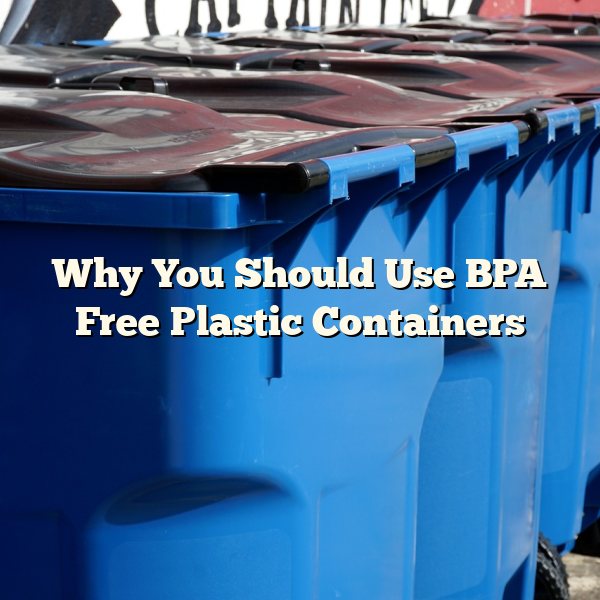BPA is a shortened form of Bisphenol A and is a harsh chemical that is used when manufacturing various plastics. Studies have indicated that food preparation requires safe storage to prevent exposure to this substance. More people are looking to use BPA free plastic containers to minimize consumption of a toxin that may be responsible for the development of a number of physical ailments.
The National Toxicity Program has released reports regarding the role of Bisphenol A in everyday consumer tasks and health having found that the substance increases risk for the development of early puberty, fertility issues, hormonal imbalances, inadequate growth, and cancers. Concerns have been raised as the chemical has been found to leak from the plastics and make its way into foods and drinks. Exposure to the toxin will result from heat exposure and is also manufactured in the lining of cans.
For growing children exposure to chemicals can wreak havoc on optimum development and should include the use of containers that are labeled as BPA free. Research is ongoing, but has shown a link between a negative impact on growth regarding physical and behavioral attributes. The kitchenware that contains the chemical should not be used and other products that are safe for heating and storage purposes should be sought.
Products should always state that it is BPA free to provide peace of mind that it has been produced without the inclusion of this chemical. If you cannot find any information with regards to Bisphenol A, it may be indicated by the recycling number that should not be greater than 7. It is possible to find substances that are not manufactured with toxic properties that could impact on healthy living and normal development.
It is best to search for kitchenware manufacturers in the industry with a focus on products that do not contain the harsh chemical. There are many products available without BPA and should be used rather than cheaper alternatives including food storage, jars, and drinking bottles. Such items can be used in a dishwasher and for various microwave heating purposes.
Health benefits offered with the right use of plastics that do not include Bisphenol A allow for fuller and healthier development. Studies have shown that the chemical can make its way into food upon heating, but also absorbed into the skin with regular handling. It is most beneficial to make use of non-toxic ranges to ensure that harmful exposure is minimized.
Care should be taken to search for products that are chemical free. Look at the recycling number and ensure that the manufacturer does not support the use of such chemicals in its product range. The potential health risks of the substance are still being researched; however, it is safest to replace with plastics that are free from such substances.
Take a closer look at the labels included on canned foods. There are many tins that are lined with the chemical and therefore healthy alternatives should be sought. Purchasing fresh fruits and goods for storage in BPA free plastic containers can prevent unnecessary exposure to the toxin.
Read more about The Health Benefits BPA Free Plastic Containers visiting our website.

